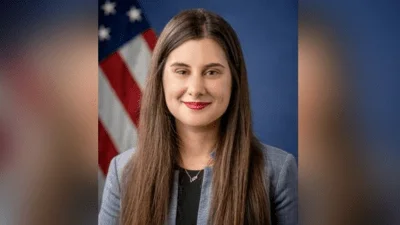Cheri Quickmire Executive Director of Common Cause Connecticut | Common Cause Connecticut
Cheri Quickmire Executive Director of Common Cause Connecticut | Common Cause Connecticut
Proponents of a legislative proposal that would exempt from public disclosure all research, data, and reports produced by public colleges and universities have adopted a strategy of attacking the messenger rather than the message — that is, the individual who represents the pro-government transparency group, the Connecticut Council on Freedom of Information.
It’s a diversionary tactic. In actuality, the proponents are attacking the more than 3 million Connecticut residents whose access to all information, with the exception of financial documents, would be completely cut off. Connecticut residents have paid for billions of dollars in bricks-and-mortar improvements at the University of Connecticut, the state’s flagship institution of higher learning, as well as infrastructure upgrades at all campuses of the Connecticut State Colleges and Universities system.
State residents pay the salaries of faculty, staff, and coaches in public higher education in addition to much of the research being conducted by many of these same faculty members, staff, and students.
At its core, this issue is about the public’s right to know what is going on behind the walls of academe. The bill under consideration by the legislature would make those walls impenetrable. It would eliminate accountability and allow misconduct to go undisclosed and possibly unpunished.
Advocates of this bill, known as SB 394, argue that this proposal was birthed because scores of professors have been harassed or intimidated. To that point, very little evidence was presented at public hearings last year and again this year to suggest that harassment is a huge problem.
It was acknowledged at this year’s hearing that faculty members who felt they were harassed failed to use provisions in the Freedom of Information Act that would protect them from perpetrators. If professors had made an effort — instead of seeking a sweeping exemption from FOIA — they could have obtained relief using the law’s “vexatious complaint” provision.
Harassment is real and can be frightening. But with social media proliferation and coarsening public discourse, harassment occurs every minute aimed at people in every walk of life—from poll workers to librarians to journalists to friends and family members. Why should professors be a privileged class?
SB 394 is so far-reaching that it would make off-limits anything arising from teaching or research. That covers public higher education's universe, including innocuous items like course syllabi and book lists.
Here are some examples of stories that might never have come to light if SB 394 had been in effect:
* An 84-year-old professor at UConn School of Medicine collected paychecks for months even though he never showed up for work. It turned out he was dead and his wife had been cashing his paychecks.
* The head of UConn police sex crimes unit was removed last year for allegedly kissing and touching staff members.
* Monkeys died due to flawed UConn research projects culminating in closing the primate lab.
* The chancellor of CSCU system named cronies to highly-paid administrative jobs without appropriate personnel searches while deep cuts were made to student programs and services.
* Former men’s basketball coach Kevin Ollie sued UConn for breach of contract and ultimately reached a multimillion-dollar settlement.
* Allegations of sexual assault were made by students at Central Connecticut State University against faculty members resulting in subsequent findings of sexual misconduct by two professors.
* The faculty Senate voted “no confidence” in Western Connecticut State University's president.
* UConn’s Environmental Research Institute was investigated by federal and state authorities found guilty of scientific misconduct resulting in hefty fines and firings.
There are numerous examples impossible to list here comprehensively. What state residents should know is if SB 394 were enacted into law their right to know what goes on at Connecticut’s publicly supported colleges and universities will be extinguished.
Michele Jacklin is legislative co-chair for Connecticut Council on Freedom of Information. She also serves on Common Cause in Connecticut's board.






 Alerts Sign-up
Alerts Sign-up